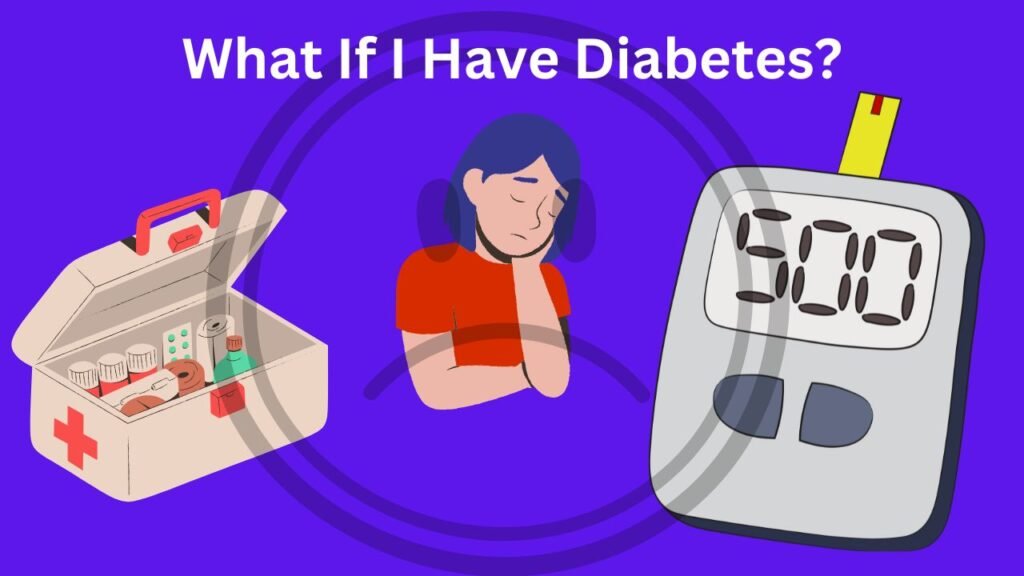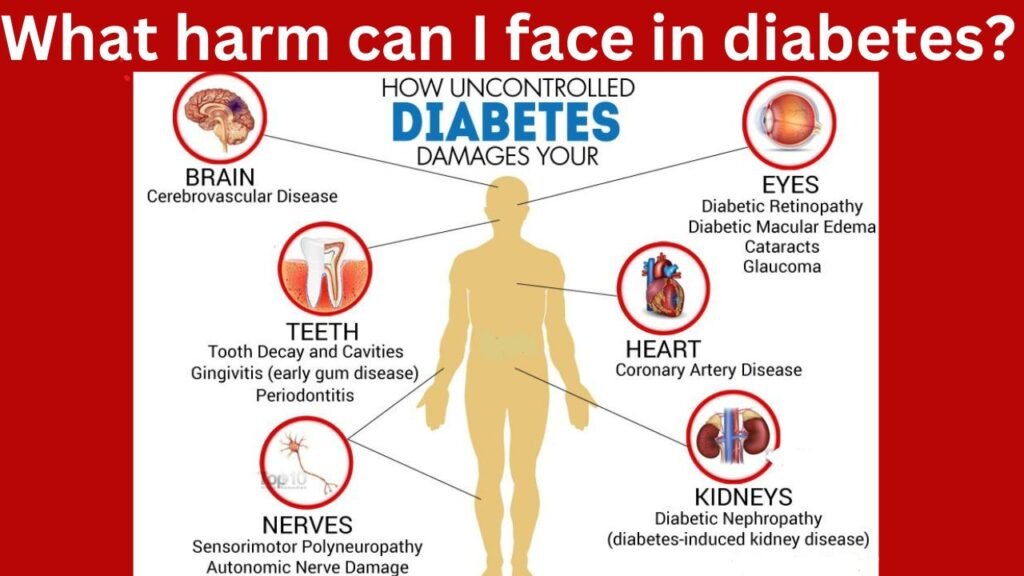What If I have diabetes? You feel some unconsciousness feelings, then you can say now you are also the patent of diabetes, or another common name sugar.
These are some sign and symptoms you feel.
Frequent urination
Excessive thirst
Extreme hunger
Unexplained weight loss
Fatigue
Blurred vision
Slow-healing sores or frequent infections
Table of Contents
What if I have diabetes?

Hearing the words, “You have diabetes,” can be overwhelming. It’s a life-changing diagnosis, filled with a whirlwind of emotions and questions. What if I have diabetes thought you might feel scared, angry, or even helpless. However, living with diabetes doesn’t mean the end of the world. Instead, it marks the beginning of a new journey – one that can be managed with knowledge, support, and resilience.
Receiving a diabetes diagnosis often triggers a wave of emotions. Initially, there may be shock and denial. “This can’t be happening to me,” you might think. As the reality sets in, fear and confusion can take over. The questions begin: “What will my life look like now? Can I still enjoy my favorite foods? How will this affect my family?”
These feelings are natural. It’s important to acknowledge them and understand that you’re not alone. Millions of people live with diabetes, and many of them thrive. It’s crucial to remember that with the right tools and support, you can manage diabetes effectively. Then you will not regret on what if I have diabetes.
What is Diabetes?
Diabetes is a chronic condition that affects millions of people worldwide. It occurs when the body either cannot produce enough insulin or cannot effectively use the insulin it produces. Insulin is a hormone that regulates blood sugar (glucose) levels, allowing the body to convert sugar into energy. When this process is disrupted, it leads to elevated blood sugar levels, which can cause serious health complications over time.
There are three main types of diabetes:
Type 1 Diabetes: This is an autoimmune condition where the body’s immune system attacks and destroys the insulin-producing cells in the pancreas. It is usually diagnosed in children and young adults, and patients require lifelong insulin therapy.
Type 2 Diabetes: This is the most common form of diabetes, accounting for around 90-95% of all cases. It typically develops in adults but is increasingly being diagnosed in children and adolescents due to rising obesity rates. Type 2 diabetes occurs when the body becomes resistant to insulin or the pancreas does not produce enough insulin.
Gestational Diabetes: This type occurs during pregnancy and usually disappears after giving birth. However, it increases the risk of developing type 2 diabetes later in life for both the mother and child.
What harm can I face in diabetes?

Causes and Risk Factors:
The exact cause of diabetes varies depending on the type:
Type 1 Diabetes: The cause is unknown, but it is believed to involve a combination of genetic predisposition and environmental factors, such as viral infections.
Type 2 Diabetes: This type is strongly linked to lifestyle factors, including poor diet, lack of physical activity, and being overweight or obese.
Genetics also play a significant role.
Gestational Diabetes: Hormonal changes during pregnancy can affect insulin function, especially in women who are overweight or have a family history of diabetes.
Complications
If left untreated or poorly managed, diabetes can lead to serious health problems, including:
Cardiovascular Disease: Diabetes significantly increases the risk of heart disease, stroke, and high blood pressure.
Nerve Damage (Neuropathy): High blood sugar can damage nerves, particularly in the legs and feet, leading to pain, tingling, and loss of sensation.
Kidney Damage (Nephropathy): Diabetes is a leading cause of kidney failure, requiring dialysis or kidney transplantation.
Eye Damage (Retinopathy): Diabetes can cause vision problems and even blindness by damaging the blood vessels in the retina.
Foot Problems: Poor blood flow and nerve damage in the feet can lead to infections and, in severe cases, amputation.
The cure of this diabetes are divided into many factors .


